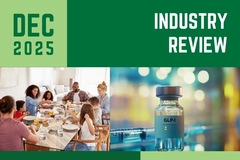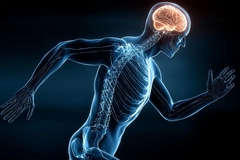Poor Hydration May Contribute to Obesity, Study Suggests
15 Jul 2016

15 Jul 2016 --- Researchers have found a significant association between inadequate hydration and both elevated body mass index (BMI) and obesity, according to findings published in the July/August issue of the Annals of Family Medicine journal.
"Our findings suggest that adequate hydration may play a role in weight and prompt further discussion regarding adequate hydration during weight management counseling," writes lead author Tammy Chang, MD, MPH, from the Department of Family Medicine at the University of Michigan, Ann Arbor, and colleagues.
If obese people are not hydrating properly or are eating when they think they are hungry, but are actually thirsty, education may help differentiate the cues, the authors continue.
The researchers analyzed a nationally representative sample from the National Health and Nutrition Examination Survey (NHANES) 2009 to 2012, which included adults aged 18 to 64 years (n = 9528; weighted n = 193.7 million). In the sample, 50.8% were women, 64.5% were non-Hispanic white, and the mean age was 41 years.
They looked at BMI for obesity status and its correlation with urine osmolality values of 800 mOsm/kg or greater, which indicates inadequately hydrated. They adjusted for known confounders including age, race/ethnicity, sex, and income-to-poverty ratio.
They found that adults who were inadequately hydrated had higher BMIs than those who were adequately hydrated (1.32 kg/m2 higher, on average; 95% confidence interval [CI], 0.85 - 1.79 2; P < .001), as well as higher odds of being obese (OR, 1.59; 95% CI, 1.35 - 1.88; P < .001).
Osmolality a Better Measure Than Water Intake
Urine osmolality is regarded as an excellent measure of hydration and is a better indicator than just water intake because it accounts for water and solutes acquired in food and other drinks, the authors explain.
To exclude confounding from factors known to alter urine osmolality, researchers performed a sensitivity analysis and excluded people who had a diagnosis of diabetes, who had an elevated glycol-hemoglobin level (6.5% or greater), or who were currently prescribed a diuretic.
Although drinking water often comes up in discussion of weight management by clinicians and media reports, adequate hydration is not included in treatment guidelines.
Water Needs Increase with Higher BMI
The authors note that clinicians may not be aware that people with higher BMIs need more water, and they may not be properly counseling them on hydration amounts:
The authors note that clinicians may not be aware that people with higher BMIs need more water, and they may not be properly counseling them on hydration amounts:
"Obese individuals have higher water needs than non-obese individuals, because water needs depend upon metabolic rate, body surface area, and body weight," they explain.
The authors also note that poor hydration has also been linked to worsened mental, physical, and emotional health, and it may affect performance in tasks that require attention, psychomotor, and memory skills. Declining mood, headaches, and poor kidney function have also been linked to inadequate hydration.
Among limitations of the study were that data show correlation, but not causation. Also, it is possible the single urine osmolality reading for individuals available in the NHANES data does not represent usual level of hydration. In addition, because only people aged 18 to 64 years were included, the results may not generalize to children or older adults.
All content and features on this website are copyrighted with all rights reserved. The full details can be found in our privacy statement
Subscribe to our newsletters
By continuing to browse our site you agree to our Privacy Statement











